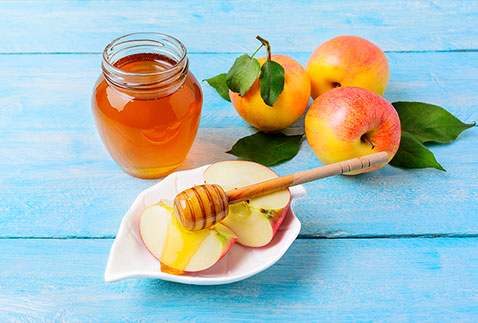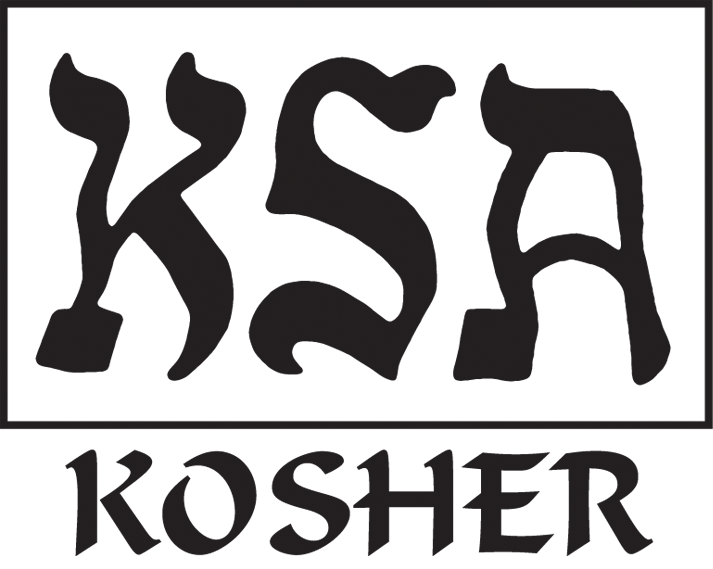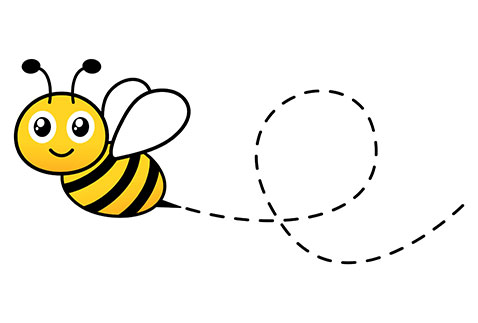There is a long-standing Jewish tradition to eat apples dipped in honey on Rosh Hashanah, symbolizing our wish for a sweet New Year.
But why is honey considered kosher?
According to Jewish law, a derivative of a non-kosher animal or insect is considered impure, so the question arises:
How is honey kosher if it comes from a non-kosher bee?
Interestingly, honey is not actually produced by the bee’s body. Bees simply transport floral nectar in their mouths as temporary “storage” until the sugar levels reach 80 percent, and then they store it in the honeycomb. Bees’ honey indeed represents a unique kashrut phenomenon!
The bee gathers flower juice, or nectar, and carries it to the beehive.
Honeybees produce honey for their own use and for their young, unaware that they are also providing mankind with one of nature’s most nurturing foods.
It has been estimated that in order to produce one pound of honey, a bee would have to fly some 50,000 miles!
In the United States, more than 225 million pounds of honey are produced each year. Honey is second to none in food value.
Since we are on the topic of Honey and Rosh Hashana, it seems fitting to mention that Kosher Supervision of America (KSA) has been proudly Kosher certifying for nearly 2 decades a variety of quality honey products produced by Savannah Bee Company based in Savannah Georgia.
Every year, a KSA Rabbi visits the Savannah Bee facilities periodically throughout the year, to inspect operations and renew certification. In order to maintain their Kosher status, Savannah Bee ensures that they follow the guidance and standards of the KSA.
A few years ago, an intriguing challenge arose when Savannah Bee Company introduced a new boiler tank.
“It’s a crucial piece of equipment,” says Felicia Renick, SBC’s Food Safety Coordinator. “It’s how we warm the honey to a liquified state so it can travel through various pipes into our jars, bottles, and recyclable squeezers. Our old tank could process 7 drums of honey, but this new boiler can handle more than 20! Imagine all that golden goodness!”
But before any honey could be processed, the new tank had to be made kosher.
So, when it came time to replace the old tank, Savannah Bee called the Rabbi. Before they could bring the new high-capacity tank into use, it had to be cleaned according to Kosher standards.
On a sunny spring day, an oversized truck carrying the new tank arrived at Quala Wash in Garden City, not far from Savannah.
The Rabbi and Felicia, the food safety coordinator, were there to oversee the process.
To “kasher” something means to make it Kosher, and the process involves washing it with extremely hot water for an extended period. The honey itself does not need to be kashered, just the equipment it touches. Straight from the bees, honey is inherently Kosher—unless it encounters something non-kosher.
As the Rabbi explained, “It’s not the honey, but what it touches. If honey gets mixed with a non-kosher product or sits in a non-kosher container, that’s when it becomes problematic.”
“Think of cooking onion soup—no matter what you make in that pot afterwards, it is always going to taste a little bit like onion. You need an intermediary step to remove the flavor.”
Felicia added, “Even though the new tank appeared sparkling clean, we didn’t know what it had been used for before, so it was essential to have the Rabbi kasher it, neutralizing any possible residual non-kosher elements through heat.”
With the Rabbi’s signature, the tank was certified Kosher, now ready to process more honey than ever before.
Savannah Bee Company takes great pride in serving Jewish communities everywhere, ensuring that all their facilities, equipment, and products meet Kosher standards. If you check any of their labels, you will spot the KSA Kosher logo which guarantees that their honey is fit for consumption at a Rosh Hashanah table or as a gift to a Jewish home.
This year, Rosh Hashanah falls from Wednesday night, October 2nd through Friday, October 4th. On the first night, we traditionally dip a slice of apple in honey, recite a short prayer, (in addition to the usual blessing) and ask G-d to bless us with a “good and sweet year.”
You can purchase certified Kosher honey from Savannah Bee Co. by visiting this link – https://savannahbee.com/collections/honey
From the entire KSA family, we wish you a Happy and Sweet New Year!


